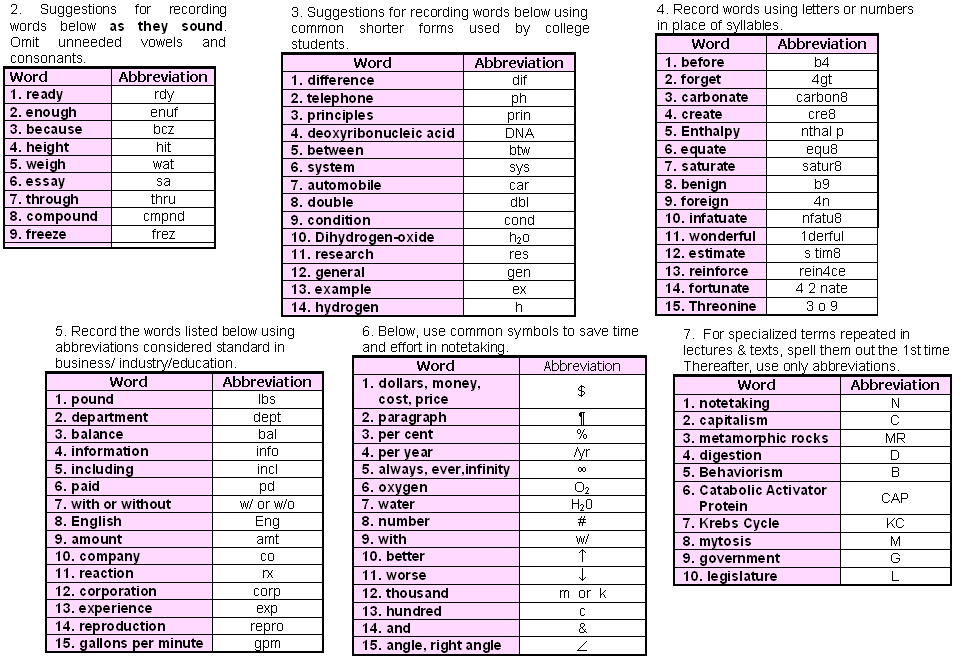
|
 |
|||||
Dedicated to providing information for learning assistance professionals. |
||||||
 |
Notetaking Time Savers
|
|||||
|
Name___________________________________________________________ Class days/times _______ __________________ Keeping up with a lecture while taking notes in class is difficult to impossible for learners who try to write down every word. Notetaking is more effective if learners practice a few simple Time Savers designed to make taking notes faster and easier. To help you refine condensing and abbreviation skills, complete the
exercise below. It may be slow at first but you will pick up speed as
you practice. "Today we are going to talk about Behavioral Learning Theories
of which there are three. In general, Behavioral Theorists focus on
observable behavior. One theory of learning based on behavior is Pavlovian
Conditioning or Classical Conditioning. This involves a reflexive response
associated with a new stimulus. For example, a reflexive response of
a dog when he sees food is to salivate. In Classical Pavlovian Conditioning,
we can teach a dog to salivate when a bell rings, a new stimulus, by
teaching a dog to associate a ringing bell with food. Learners can keep up with a lecture by eliminating unnecessary words. Below is an example of how the above lecture could be condensed, organized, and recorded: 3 Behav. Lrng theories 1. Pavlovian/Classical - assoc. Reflexive resp.
w/ new stim. 2. Observational - imitate others we see. 3. Operant - volun. Resp.(desired behav.) strengthen w/ rein. It is easier and faster to write 50 words using abbreviations and short
phrases than it is to write 196 whole words in complete sentences. Learners
also have more time to listen and focus on understanding lectures.
Record the words below as they sound. Omit unneeded vowels and consonants. Then, find 10 words from a course you are taking and abbreviate them below as they sound. Course name _________________________________
Course name _________________________________
Record the words listed below using letters or numbers in place of syllables instead of writing out the whole word. Then, find 10 commonly used words from a course you are taking now and record those words below using numbers or letters in place of syllables. Course name _________________________________
Course name _________________________________
Below, use common symbols to save time and effort in notetaking instead of writing out whole words. Then, find 10 commonly used words from a course you are taking now and record the symbols (existing symbols or your own) below for using this rule. Course name _________________________________
Course name _________________________________
a. Cross out as many words as possible in each sentence below without losing the meaning. b. Next, cross out any remaining words for which abbreviations can be used and write an abbreviation above the word. c. Finally, re-write your new condensed sentence and write the total number of words you now have. 1) "Write each of your class reports clearly, legibly and very concisely using only complete sentences and your best correct grammar to express your ideas." (24 words) Condensed version__________________________________________________ #of Words _______ 2) "In the introduction to your class speech, the goal to keep in mind and strive for is to seek to win the good will, attention and interest of your listening audience." (31 words) Condensed version__________________________________________________ #of Words _______ 3) "At the same time, the newly arrived religion of Christianity wisely
encouraged adjustment to the lofty ideas and long established institutions
of Rome." (23 words) Record 3 sentences from one of your textbooks. Below each of these sentences, rewrite it using abbreviations and necessary words only. Textbook Name __________________________ Course __________________________ 1. ________________________________________________________________________________ ___________________________________________________________________________________ 2. _________________________________________________________________________________ ___________________________________________________________________________________ 3. __________________________________________________________________________________ ____________________________________________________________________________________
E pd t rgstrar $1m 4 hs clses. ___________________________________________________________________________________________________________ T lnng towr wz blt @ a bd Ð2 us 4 mkng ptza. ___________________________________________________________________________________________________________ F i tld u 1x, I tld u a C xs, Fri. s qz day. ___________________________________________________________________________________________________________ During WW II, the GNP á 3X over t previous C yrs. ___________________________________________________________________________________________________________ US corps á $ by ½ drng t recessn despite t 4cst. ___________________________________________________________________________________________________________ Use the 8 Notetaking Time Savers as you take notes from textbooks and lectures. As you use abbreviations more and more, you will spend less and less time writing notes and more time listening or reading for important ideas. Since abbreviations condense notes, there will be less written material to learn and remember. Notes are personal in that only you need to understand them. Better students set up notetaking systems to improve their grades and if someone else can benefit by reading them, that's fine but incidental. Composing notes so everyone else can understand them wastes time and requires unnecessary effort. Suggestion key for abbreviations. Your personal abbreviations are
as good as any suggested here, if you prefer. Suggestions for using as few words as possible exercise: 1) "Write 2) "In 3) "At Confidence Building Exercise: E pd t rgstrar $1m 4 hs clses. He paid the registrar $1000 for his classes__________________________________
T lnng towr wz blt @ a bd Ð2 us 4 mkng ptza. The leaning tower was built at a bad angle to use for making pizza_______________ F i tld u 1x, I tld u a C xs, Fri. s qz day. If I told you once I told you a hundred times, Friday is quiz day.__________________ During WW II, the GNP á 3X over t previous C yrs. During World War II, the gross national product increase by three times over the previous 100 years. US corps á $ by ½ drng t recessn despite t 4cst. United state corporations increase profits by one/half during the recession
despite the forecast. Questions or comments? Contact the author at dcongos@mail.ucf.edu. |
||||||
| Home::
Past Articles
:: Conferences
:: Citation
Information :: Feedback
:: About
the Authors :: Subscription
Information :: Submission
Guidelines Site Last Updated October 28, 2006. Sponsored By AccuTrack and NCLCA |
||||||



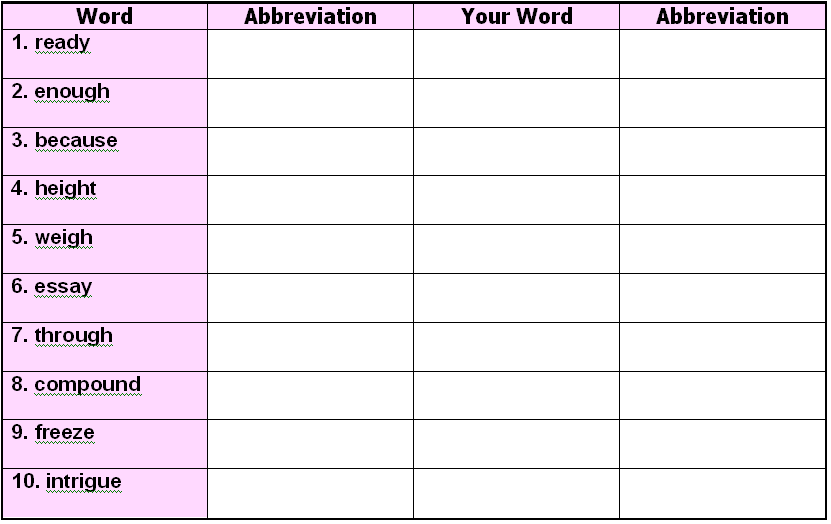


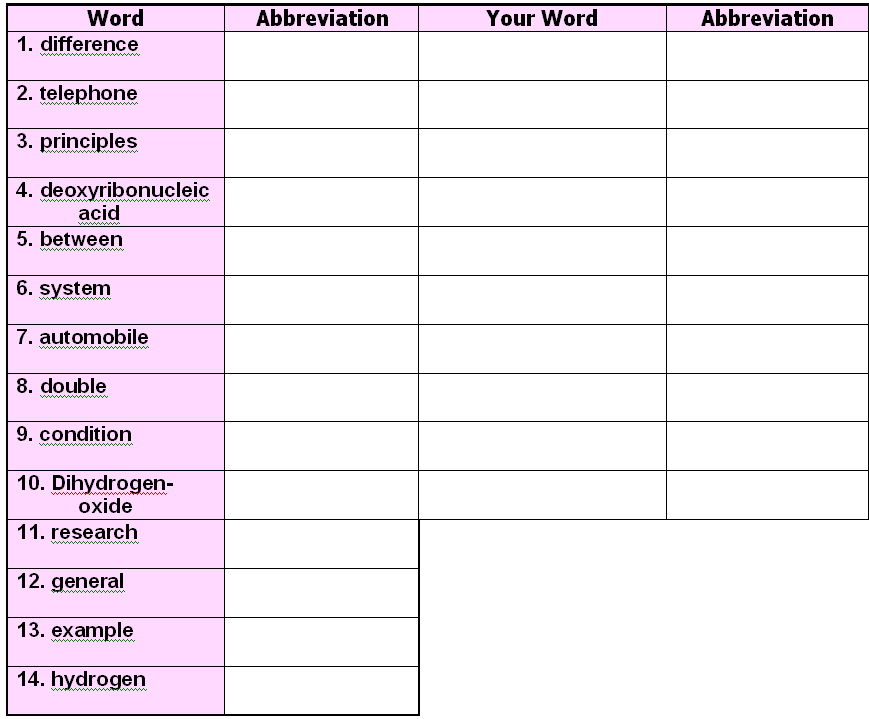



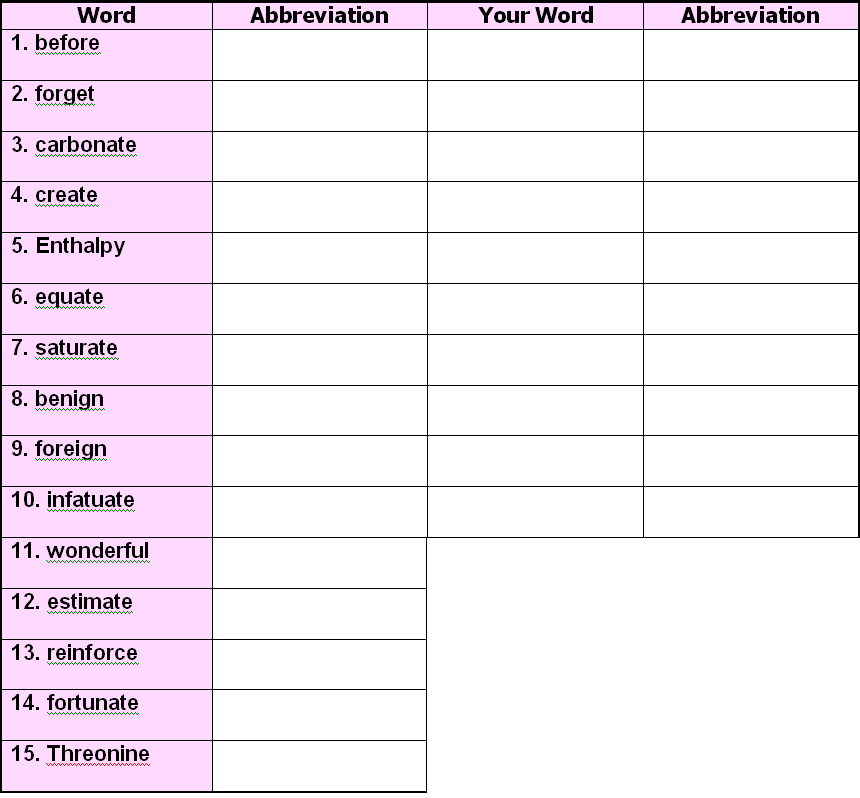


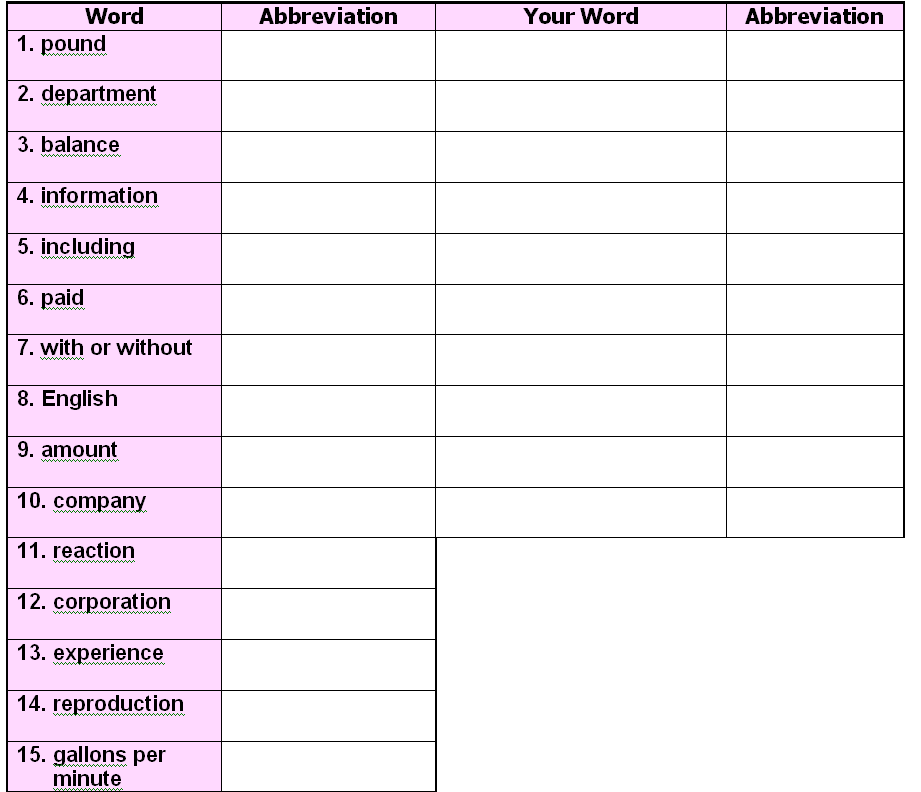

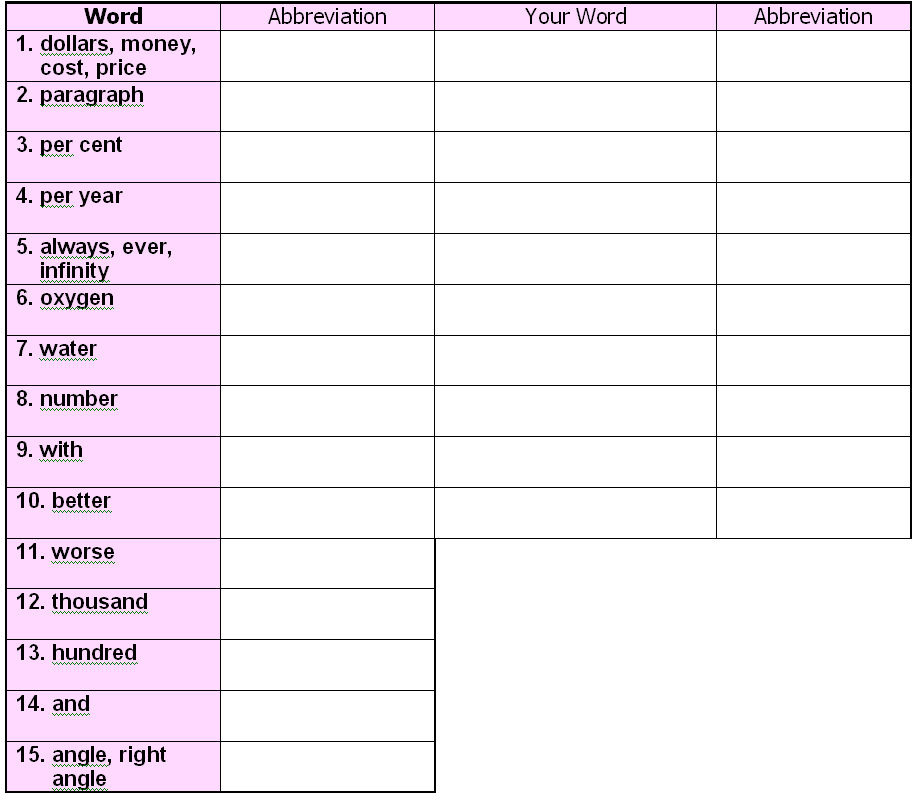



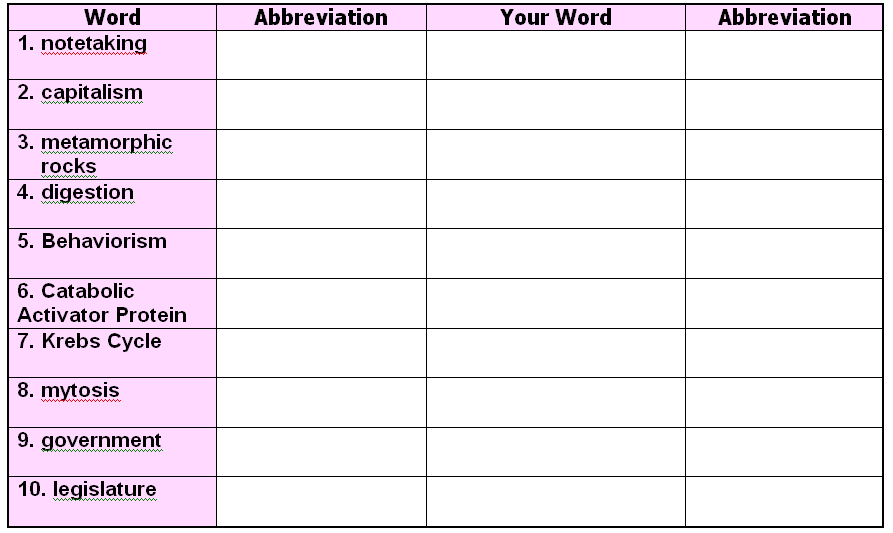



 Many students
fear they will forget the meaning of abbreviations they use. While this
is an understandable fear, it rarely happens. One reason is that the
context surrounding each abbreviation gives clues to its meaning. To
reduce the fear of forgetting, decipher the following sentences made
almost totally from of someone else's unfamiliar abbreviations.
If you can translate most or all of these abbreviations, there is little
reason to fear that you will forget your own.
Many students
fear they will forget the meaning of abbreviations they use. While this
is an understandable fear, it rarely happens. One reason is that the
context surrounding each abbreviation gives clues to its meaning. To
reduce the fear of forgetting, decipher the following sentences made
almost totally from of someone else's unfamiliar abbreviations.
If you can translate most or all of these abbreviations, there is little
reason to fear that you will forget your own.

